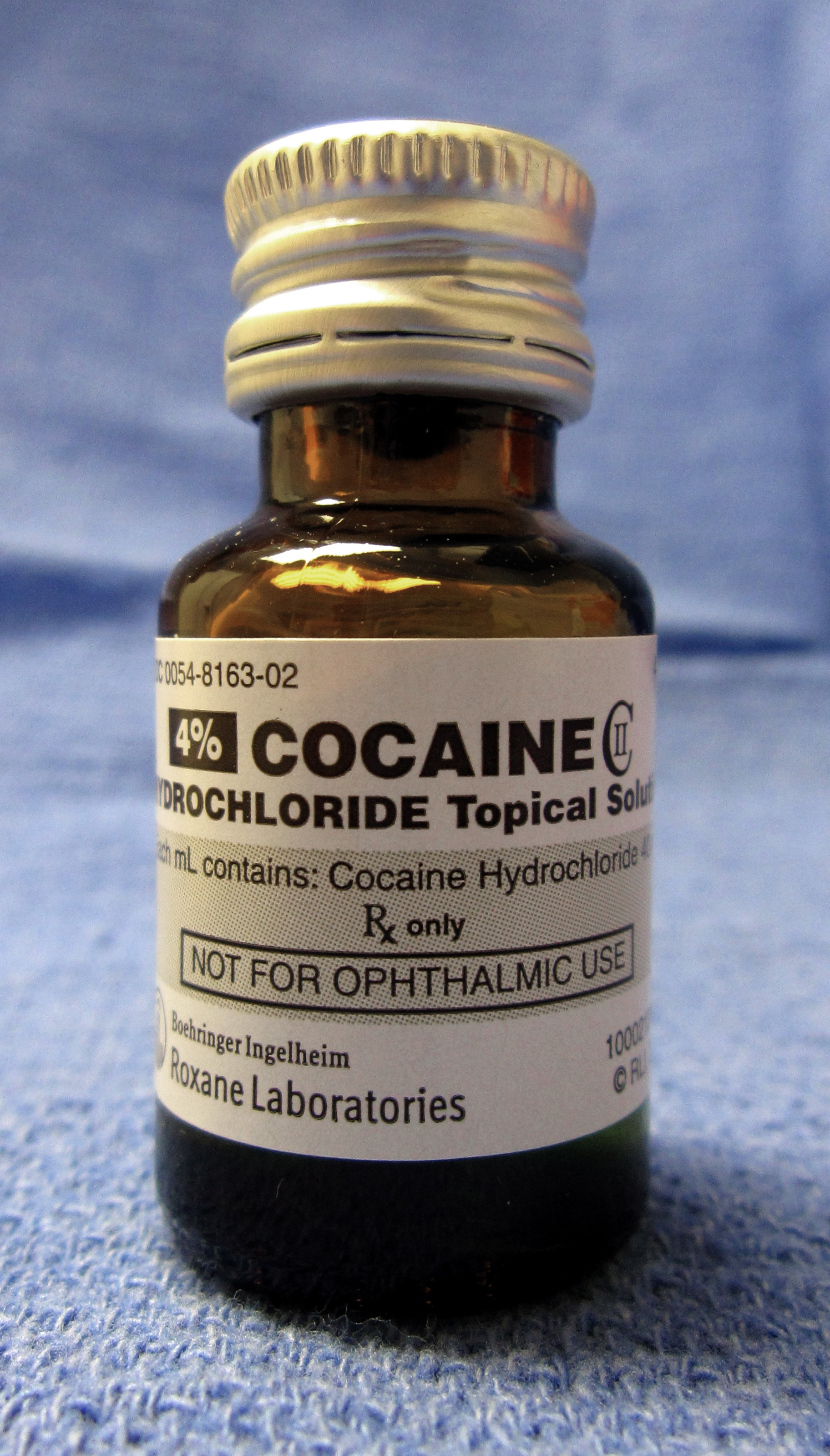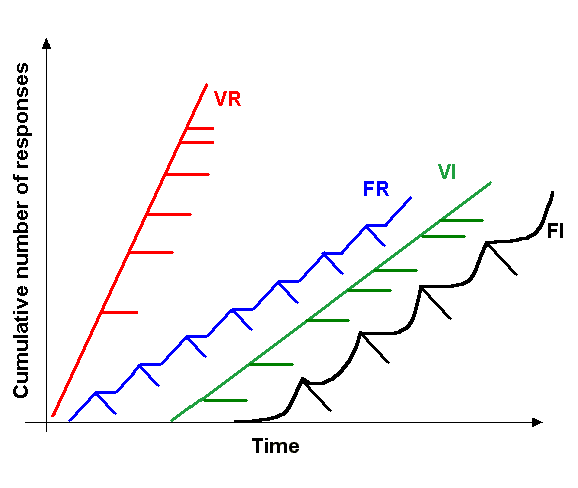|
Relapse
In internal medicine, relapse or recidivism is a recurrence of a past (typically medical) condition. For example, multiple sclerosis and malaria often exhibit peaks of activity and sometimes very long periods of dormancy, followed by relapse or recrudescence. In psychiatry, relapse or reinstatement of drug-seeking behavior, is the recurrence of pathological drug use, self harm or other symptoms after a period of recovery. Relapse is often observed in individuals who have developed a drug addiction or a form of drug dependence, as well as those who have a mental disorder. Risk factors Dopamine D2 receptor availability The availability of the dopamine receptor D2 plays a role in self-administration and the reinforcing effects of cocaine and other stimulants. The D2 receptor availability has an inverse relationship to the vulnerability of reinforcing effects of the drug. With the D2 receptors becoming limited, the user becomes more susceptible to the reinforcing effects of coca ... [...More Info...] [...Related Items...] OR: [Wikipedia] [Google] [Baidu] |
Multiple Sclerosis
Multiple (cerebral) sclerosis (MS), also known as encephalomyelitis disseminata or disseminated sclerosis, is the most common demyelinating disease, in which the insulating covers of nerve cells in the brain and spinal cord are damaged. This damage disrupts the ability of parts of the nervous system to transmit signals, resulting in a range of signs and symptoms, including physical, mental, and sometimes psychiatric problems. Specific symptoms can include double vision, blindness in one eye, muscle weakness, and trouble with sensation or coordination. MS takes several forms, with new symptoms either occurring in isolated attacks (relapsing forms) or building up over time (progressive forms). In the relapsing forms of MS, between attacks, symptoms may disappear completely, although some permanent neurological problems often remain, especially as the disease advances. While the cause is unclear, the underlying mechanism is thought to be either destruction by the immune sys ... [...More Info...] [...Related Items...] OR: [Wikipedia] [Google] [Baidu] |
Drug Addiction
Addiction is a neuropsychological disorder characterized by a persistent and intense urge to engage in certain behaviors, one of which is the usage of a drug, despite substantial harm and other negative consequences. Repetitive drug use often alters Brain#Function, brain function in ways that perpetuate Craving (withdrawal), craving, and weakens (but does not completely negate) self-control. This phenomenon – drugs Neuroplasticity, reshaping Human brain, brain function – has led to an understanding of addiction as a brain disorder with a complex variety of Social psychology, psychosocial as well as Neuroscience, neurobiological (and thus involuntary) factors that are implicated in addiction's development. Classic signs of addiction include Compulsive behavior, compulsive engagement in Reward system, rewarding stimuli, ''preoccupation'' with substances or behavior, and continued use despite negative consequences. Habits and patterns associated with addiction are typically ... [...More Info...] [...Related Items...] OR: [Wikipedia] [Google] [Baidu] |
Recrudescence
Recrudescence is the revival of material or behavior that had previously been stabilized, settled, or diminished. In medicine, it is usually defined as the recurrence of symptoms after a period of remission or quiescence, in which sense it can sometimes be synonymous with relapse. In a narrower sense, it can also be such a recurrence with higher severity than before the remission. "Relapse" conventionally has a specific (albeit somewhat illogical) meaning when used in relation to malaria (see below). Malaria In malaria, recurrence can take place due to ''recrudescence''; or ''relapse''; or ''re-infection'' (via mosquito transmission). ''Relapse'' means that a recurrence has been precipitated by a dormant stage in the liver called a "hypnozoite". Thus, ''relapse'' is applied only for those plasmodial species that have hypnozoites in the life cycle, such as ''Plasmodium vivax'' and ''P. ovale''. On the other hand, ''recrudescence'' means that circulating, multiplying parasites are de ... [...More Info...] [...Related Items...] OR: [Wikipedia] [Google] [Baidu] |
Malaria
Malaria is a mosquito-borne infectious disease that affects humans and other animals. Malaria causes symptoms that typically include fever, tiredness, vomiting, and headaches. In severe cases, it can cause jaundice, seizures, coma, or death. Symptoms usually begin ten to fifteen days after being bitten by an infected mosquito. If not properly treated, people may have recurrences of the disease months later. In those who have recently survived an infection, reinfection usually causes milder symptoms. This partial resistance disappears over months to years if the person has no continuing exposure to malaria. Malaria is caused by single-celled microorganisms of the ''Plasmodium'' group. It is spread exclusively through bites of infected ''Anopheles'' mosquitoes. The mosquito bite introduces the parasites from the mosquito's saliva into a person's blood. The parasites travel to the liver where they mature and reproduce. Five species of ''Plasmodium'' can infect and be spread by h ... [...More Info...] [...Related Items...] OR: [Wikipedia] [Google] [Baidu] |
Drug Dependence
Substance dependence, also known as drug dependence, is a biopsychological situation whereby an individual's functionality is dependent on the necessitated re-consumption of a psychoactive substance because of an adaptive state that has developed within the individual from psychoactive substance consumption that results in the experience of withdrawal and that necessitates the re-consumption of the drug. A '' drug addiction'', a distinct concept from substance dependence, is defined as compulsive, out-of-control drug use, despite negative consequences. An ''addictive drug'' is a drug which is both rewarding and reinforcing. ΔFosB, a gene transcription factor, is now known to be a critical component and common factor in the development of virtually all forms of behavioral and drug addictions, but not dependence. The International Classification of Diseases classifies substance dependence as a mental and behavioural disorder. Within the framework of the 4th edition of the ... [...More Info...] [...Related Items...] OR: [Wikipedia] [Google] [Baidu] |
Self-administration
Self-administration is, in its medical sense, the process of a subject administering a pharmacological substance to themself. A clinical example of this is the subcutaneous "self-injection" of insulin by a diabetic patient. In animal experimentation, self-administration is a form of operant conditioning where the reward is a drug. This drug can be administered remotely through an implanted intravenous line or an intracerebroventricular injection. Self-administration of putatively addictive drugs is considered one of the most valid experimental models to investigate drug-seeking and drug-taking behavior. The higher the frequency with which a test animal emits the operant behavior, the more rewarding (and addictive), the test substance is considered. Self-administration of addictive drugs has been studied using humans, non-human primates, mice, invertebrates such as ants, and, most commonly, rats. Self-administration of heroin and cocaine is used to screen drugs for possib ... [...More Info...] [...Related Items...] OR: [Wikipedia] [Google] [Baidu] |
Abstinence
Abstinence is a self-enforced restraint from indulging in bodily activities that are widely experienced as giving pleasure. Most frequently, the term refers to sexual abstinence, but it can also mean abstinence from alcohol, drugs, food, etc. Because the regimen is intended to be a conscious act, freely chosen to enhance life, abstinence is sometimes distinguished from the psychological mechanism of repression. The latter is an unconscious state, having unhealthy consequences. Abstinence in religion Abstinence may arise from an ascetic over indulgent, hasidic point of view in natural ways of procreation, present in most faiths, or from a subjective need for spiritual discipline. In its religious context, abstinence is meant to elevate the believer beyond the normal life of desire, to a chosen ideal, by following a path of renunciation. In Judaism, Christianity and Islam, amongst others, pre-marital sex is prohibited. Judaism For Jews, the principal day of fast is Yom Kippu ... [...More Info...] [...Related Items...] OR: [Wikipedia] [Google] [Baidu] |
Cocaine
Cocaine (from , from , ultimately from Quechua: ''kúka'') is a central nervous system (CNS) stimulant mainly used recreationally for its euphoric effects. It is primarily obtained from the leaves of two Coca species native to South America, ''Erythroxylum coca'' and ''Erythroxylum novogranatense''. After extraction from coca leaves and further processing into cocaine hydrochloride (powdered cocaine), the drug is often snorted, applied topically to the mouth, or dissolved and injected into a vein. It can also then be turned into free base form ( crack cocaine), in which it can be heated until sublimated and then the vapours can be inhaled. Cocaine stimulates the reward pathway in the brain. Mental effects may include an intense feeling of happiness, sexual arousal, loss of contact with reality, or agitation. Physical effects may include a fast heart rate, sweating, and dilated pupils. High doses can result in high blood pressure or high body temperature. Effects ... [...More Info...] [...Related Items...] OR: [Wikipedia] [Google] [Baidu] |
Reinforcement
In behavioral psychology, reinforcement is a consequence applied that will strengthen an organism's future behavior whenever that behavior is preceded by a specific antecedent stimulus. This strengthening effect may be measured as a higher frequency of behavior (e.g., pulling a lever more frequently), longer duration (e.g., pulling a lever for longer periods of time), greater magnitude (e.g., pulling a lever with greater force), or shorter latency (e.g., pulling a lever more quickly following the antecedent stimulus). The model of self-regulation has three main aspects of human behavior, which are self-awareness, self-reflection, and self-regulation. Reinforcements traditionally align with self-regulation. The behavior can be influenced by the consequence but behavior also needs antecedents. There are four types of reinforcement: positive reinforcement, negative reinforcement, extinction, and punishment. Positive reinforcement is the application of a positive reinforcer. Nega ... [...More Info...] [...Related Items...] OR: [Wikipedia] [Google] [Baidu] |
Reinforce
In behavioral psychology, reinforcement is a consequence applied that will strengthen an organism's future behavior whenever that behavior is preceded by a specific antecedent stimulus. This strengthening effect may be measured as a higher frequency of behavior (e.g., pulling a lever more frequently), longer duration (e.g., pulling a lever for longer periods of time), greater magnitude (e.g., pulling a lever with greater force), or shorter latency (e.g., pulling a lever more quickly following the antecedent stimulus). The model of self-regulation has three main aspects of human behavior, which are self-awareness, self-reflection, and self-regulation. Reinforcements traditionally align with self-regulation. The behavior can be influenced by the consequence but behavior also needs antecedents. There are four types of reinforcement: positive reinforcement, negative reinforcement, extinction, and punishment. Positive reinforcement is the application of a positive reinforcer. Negati ... [...More Info...] [...Related Items...] OR: [Wikipedia] [Google] [Baidu] |
Dominance Hierarchy
In biology, a dominance hierarchy (formerly and colloquially called a pecking order) is a type of social hierarchy that arises when members of animal social groups interact, creating a ranking system. A dominant higher-ranking individual is sometimes called an alpha, and the submissive lower-ranking individual a beta. Different types of interactions can result in dominance depending on the species, including ritualized displays of aggression or direct physical violence. In social living groups, members are likely to compete for access to limited resources and mating opportunities. Rather than fighting each time they meet, relative rank is established between individuals of the same sex, with higher-ranking individuals often gaining more access to resources and mates. Based on repetitive interactions, a social order is created that is subject to change each time a dominant animal is challenged by a subordinate one. Definitions Dominance is an individual's preferential acces ... [...More Info...] [...Related Items...] OR: [Wikipedia] [Google] [Baidu] |
Social Hierarchy
Social stratification refers to a society's categorization of its people into groups based on socioeconomic factors like wealth, income, race, education, ethnicity, gender, occupation, social status, or derived power (social and political). As such, stratification is the relative social position of persons within a social group, category, geographic region, or social unit. In modern Western societies, social stratification is typically defined in terms of three social classes: the upper class, the middle class, and the lower class; in turn, each class can be subdivided into the upper-stratum, the middle-stratum, and the lower stratum. Moreover, a social stratum can be formed upon the bases of kinship, clan, tribe, or caste, or all four. The categorization of people by social stratum occurs most clearly in complex state-based, polycentric, or feudal societies, the latter being based upon socio-economic relations among classes of nobility and classes of peasants. Whether socia ... [...More Info...] [...Related Items...] OR: [Wikipedia] [Google] [Baidu] |






.jpg)
